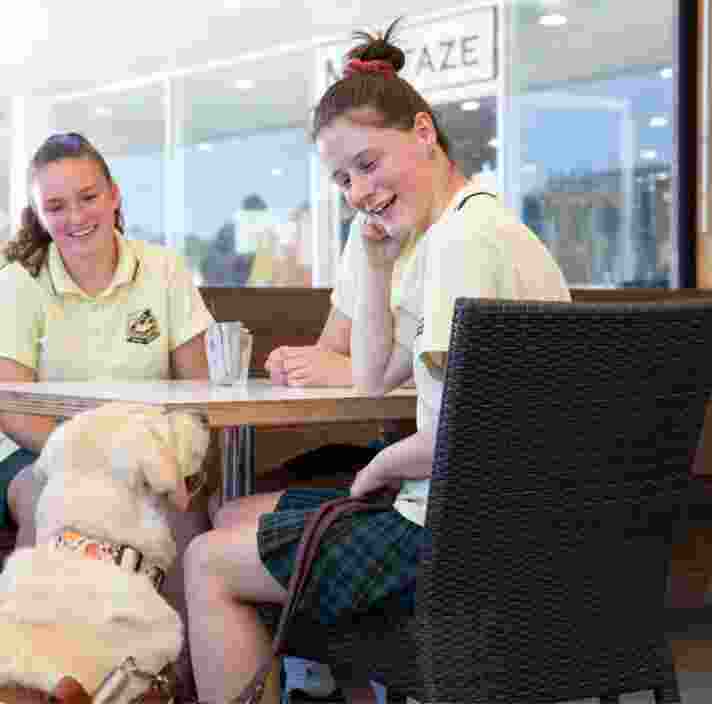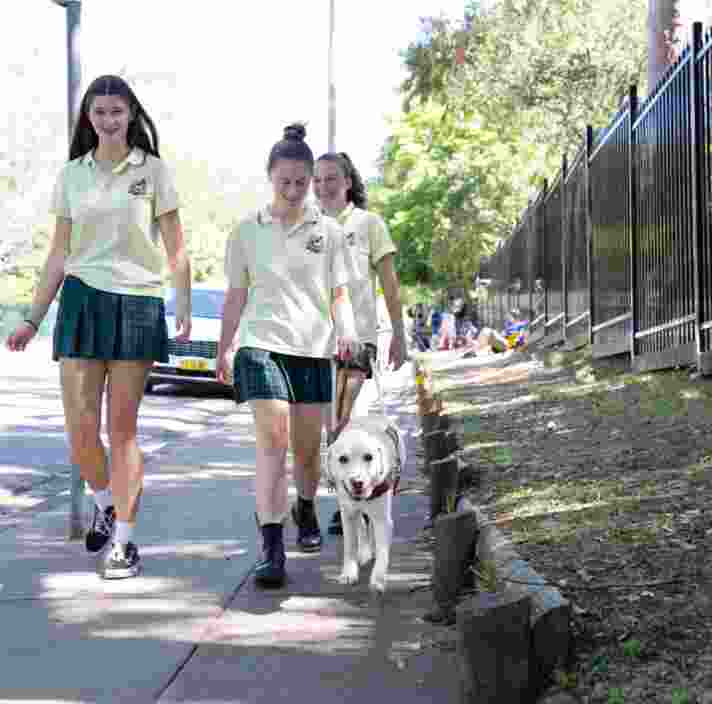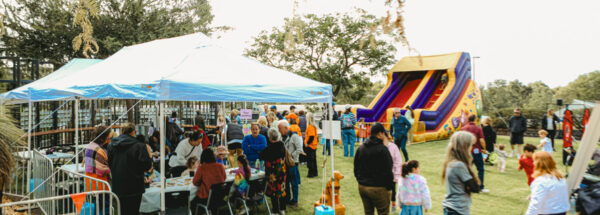On this page:
About our services
Empowering students in every way possible.
School years are some of the most exciting and challenging times of our lives. You’re constantly learning new concepts, making new friends, and growing as a person. It’s crucial that you’re able to find your bearings and navigate these experiences.
For children, tweens or teenagers with low vision or blindness, having the skills and support to experience school in the best way possible is particularly important. Guide Dogs Victoria is supported by the Department of Education to meet the needs of students with low vision or blindness attending a state, or Government-run, school. The student may already have a visiting teacher who will assist with access to the curriculum, and we will work closely with the visiting teacher to support the student. We are also able to discuss ways to support the student if they attend a Catholic or independent school.
We can provide a range of in-school services—from prep to year 12—to get the most out of school, including:
- Supporting students to move around their school independently and understand the layout of the environment.
- Assisting teachers and other school staff to develop the skills and techniques required to support a student with low vision.
- Supporting students in the transition from one school to another, or from primary school into a high school campus.
- Completing an environmental assessment—and providing feedback—with a focus on making school grounds as accessible as possible.
- Supporting Year 10 and Year 11 students to explore career paths and options, work experience, and get job-ready for the future.
- In some cases, supporting students in navigating their journey to and from school.
When you might refer
Should you get in contact?
Planning ahead and being mindful of a student’s challenges and upcoming experiences—or changes to their current lifestyle—can make all the difference. Even if a student with low vision is already learning with the support of a visiting teacher, it can be helpful to refer in situations when:
- A student with low vision has experienced an impacting change in their vision.
- A student is changing schools and support is recommended to assist independence with the transition.
If a student is not already learning with the support of a visiting teacher, a referral from you or your staff can be useful if:
- A student is frequently getting lost throughout the school grounds.
- A student is falling down frequently, or having difficulty safely navigating the school grounds.
- A student is struggling to keep up with their peers.
- A student is seeking work experience, is considering career pathways or external internships, or is commencing university and requires additional support.

How to make an effective referral
What to prepare for your referral.
To provide an effective referral, you will need to provide:
- the name of the student you are referring
- consent from the parents for you to make a referral on behalf of their child
- the student’s age
- the name of the school the student is currently at, and the school they are moving to (if relevant)
- notice of whether the school is aware that a referral is being made
- notice of whether the student or the school has any alternate funding options available (particularly if the school is not a Government-funded school)
- indicate who is primary parent or primary guardian of the child that we are to contact.

Make a referral
Refer a student now
Ready to continue?
Seems like you have filled this form earlier. Let’s pick up where you left off.

